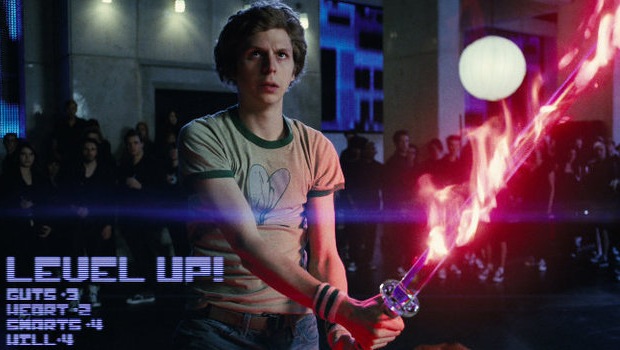Edgar Wright vs. Someone Else’s Intellectual Property
With Scott Pilgrim Vs. the World, Edgar Wright transformed a hard-sell comic book into a magical moviegoing experience. Too bad he won’t get to do the same to Ant-Man.
Creative differences is to the film industry what irreconcilable differences is to divorce: a vague umbrella term that could be a euphemism for anything from “he hit our kids” to “I didn’t like the way she made French toast.” It’s what you say when you can’t— or don’t want to— talk about the real reasons behind a split. When Edgar Wright announced he would no longer direct Marvel’s upcoming Ant-Man, the official reason he gave was that he and Marvel had “creative differences” over Wright’s vision of the film. Early rumors circulated that Marvel had brought in two scriptwriters to redo Wright’s script, which Wright wasn’t happy about.
Whatever the reason, Wright is gone as Ant-Man’s director, giving audiences no chance to see how Wright, who had been working on the movie since 2006, would bring Hank Pym’s story to the big screen. While I don’t claim to know what Wright’s vision was, I know he had a vision, because Wright is a visionary guy. This is the director who takes genre elements and twists them to suit his purposes. He’s the man who gave us genre-blended movies like Shaun of the Dead (zombie comedy) and The World’s End (apocalyptic comedy).
On the one hand, I can understand Marvel’s reluctance to give Wright carte blanche. Wright’s own movies may have been financial successes, but his adaptation of Bryan Lee O’Malley’s comic book series failed to live up to expectations. Scott Pilgrim Vs. the World made around $48 million at the box office. While tax rebates drove the budget down from $90 million to $60 million, Scott Pilgrim was a commercial failure by all standards of accounting, Hollywood or otherwise. If one were to look at the numbers, then keeping Wright on a tight leash makes sense for Marvel. After all, Marvel is on a financially successful streak and they need to keep one step ahead of the game, even if it means parting ways with the man who wrangled a comic-movie-redeeming performance out of Brandon Routh.
In many ways, Ant-Man faces similar issues that Scott Pilgrim did back in 2010. While the Scott Pilgrim series won several awards for creator Bryan Lee O’Malley, Wright was challenged with adapting the series to appeal to a wider audience. By using video-game style cinematography—complete with stats, health bars, and an arcade-style voiceover—Wright managed to make a better video-game movie than many video-game movies. O’Malley once said that he feared a movie version of Scott Pilgrim would end up “a full-on action comedy with some actor that I hated.” Instead, he found a reverential director in Wright, who worked closely with O’Malley throughout the development process to ensure that the series made the transition from print to movie in the most seamless way possible.
Here’s where Wright succeeded. While financially the movie was a failure, creatively the movie is a masterpiece, a tightly paced version of events that substitutes meandering for purpose, and streamlines the plot so well the movie’s 112-minute run time flies by. By sticking to the source material as much as possible, Wright created as much of a love story to Toronto as Steve Martin did to Los Angeles with LA Story. (Many of the film’s locations can be visited: this blog post has an excellent writeup of them all, should you find yourself in Toronto and in need of a Scott Pilgrim walking tour.) Wright’s cast—a mix of familiar actors like Michael Cera and Jason Schwartzman and up-and-comers like Mary Elizabeth Winstead—turned in pitch-perfect performances that made me seek out other roles they had dome. (Mary Elizabeth Winstead was the only reason I paid money to see Abraham Lincoln: Vampire Hunter.) With the early casting rumors coming out of Ant-Man (Paul Rudd! Evangeline Lilly! Michael freaking Douglas!) it seemed that Wright had succeeded in developing a cast that would draw fans to a movie about a lesser-known Avenger’s member.
And lesser-known is Ant-Man’s problem. Universal knew they had a familiarity problem when they greenlit Scott Pilgrim; Marvel seems to be banking on the success of their Cinematic Universe to prop up lesser-known properties like Ant-Man or the soon-to-be-released Guardians of the Galaxy. Time will tell whether Phase III will be as successful as Phase I.
Edgar Wright’s Ant-Man is one more movie that will never be. It joins an impressive list of also-rans: Who Framed Roger Rabbit 2, that Tim Burton Superman reboot starring Nicolas Cage. While I’ll certainly see Ant-Man, I’ll be sad knowing it won’t be the movie I could have seen. But then I’ll sit back, put on Scott Pilgrim, and take comfort in the fact that Wright made the comic-book movie he wanted to make, at least once.






